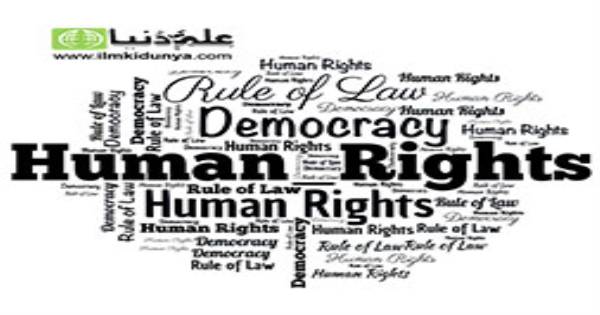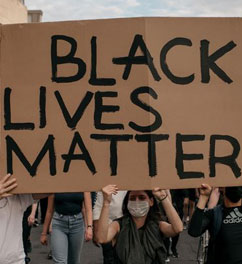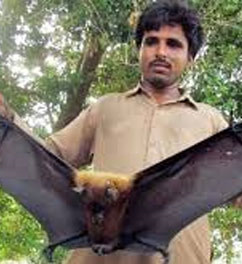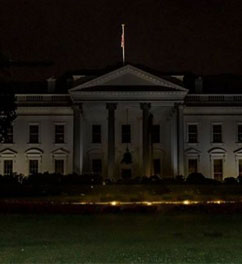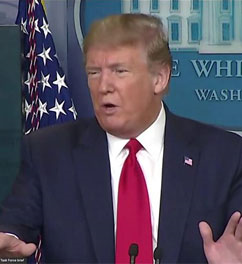Man knocked at a door.
The insider asked, “who’s there?”.
The man told, “I”.
The insider replied, “go back, and come after a year!”.
After a year, the man returned and knocked again; “who’s there” was the question from the insider.
The same reply compelled him to go back and wait for another year.
The next year, he knocked again.
The insider asked, “who’s there?”
The man, instead of saying “I”, said, “You”.
The insider welcomed him and let him come in.
The fable might look a little weird and unnatural especially on replacing the word “I” with “You”; but the lesson it leaves for us is precious, and depicts the eastern culture very well.
The saints, the reformists, the poets and the philosophers of the region taught the disciples to annihilate ego; the ego that makes us look down upon others. The ego that deceives us while gauging ourselves.
The Urdu of the word I is “MaiN” (capital N denotes noon-ghunna).
A goat (“Bakra” in Urdu) too makes these sounds when s/he has to communicate the feelings to others.
In our childhood, we used to play a game where the losers had to be whipped off by the winner shouting “Chalo merio Bakrio”. The losers while tied in reins had to respond in an utter submission by saying, “maiN…maiN…maiN…maiN”.
Perhaps that is why our ancestors used to forbid us from saying I, as it looked indecent. The speaker falls submitted to the mighty eventually. And the Almighty too doesn’t like a person stressing over “I”.
At one end, this word sounds weird, and at the other end, it fuels the false ego.
Unfortunately, these traditions are dying fast. And the people around us are adapting to such idioms, words, rituals which once used to be considered as improper and indecent.
The Pakistani media is not an exception, although it should have been an exception, for the media is comprised of those human beings whom we call the opinion makers and the trend setters.
Be it the talk-show anchors or a columnists; they are regarded as the people of communication. They must show the sense of responsibility while communicating to others. They must know that whatever they impart, carries something between the lines as well; and is communicated to the viewers and the readers equally effectively as their ideas are. In some cases, maybe ideas are not communicated but the words they speak, the way they speak and the way they look while speaking in the visual media.
The word “I” leaves very bad impact over the viewers’ aesthetic sense, and the readers who spare their precious time to watch/listen/read might start thinking that they did not spare the time to soothe the writers’/ speakers’ ego. Rather, they spared time to seek for further knowledge in the direction the writer/speaker is supposed to be expert in.
One of my TV anchor friends asked me to give my feedback to her after watching her talk show on a current affair issue aired by PTV News.
After watching the whole episode, I came to know that this poor soul too, perhaps unconsciously or who knows, had been stained in the very color her seniors had sunk in. Yes, the excessive use of “I” was the point to be communicated to her, with a request to avoid.
The point was, a TV anchor is not the ONLY person who is doing the show. A whole team is involved in producing it. So, the question from the guest in the studio or on the beeper must be asked on the behalf of the team, instead of asking on the behalf of the anchor only. For, it’s the display of sheer dishonesty that you ignore the whole team and start highlighting yourself. Even if the team wasn’t involved at all, one should be courteous enough to include those who some way or the other helped the anchor come to this status.
It is unethical to keep babbling like Bakras all along; “MaiN nay break laini hay”, MaiN aap ki taraf bhe aata/aati hoon”, Mujhay yeh samajhaaeN”, “Mujhay yeh bataaeN”, “MaiN nay break pay jaana hay” etc…
These Bakra anchors not only discredit their team members, but also try to assert that it is only THEY who are running the show. If they were not there, the TV channel would have gone barren centuries ago.
Our anchors have forgotten most of the very basic lessons of media ethics they have studied at the university. But forgetting the trait of human beings and adapting to the features of Bakras is the worst of all…
Ahmad Hammad








.gif)








